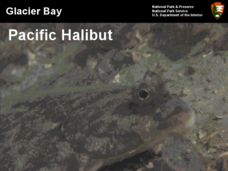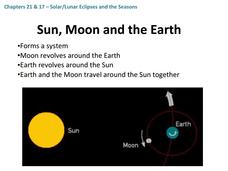Howard Hughes Medical Institute
Vertebrate Circulatorium
When you get to the heart of the matter, you learn a lot about an organism by studying its circulatory system! A perfect resource for a zoology or anatomy class, the simulation gives users a peek inside a variety of vertebrates to...
Center for Technology in Teaching and Learning
MedMyst: Animal Alert!
An outbreak of disease is affecting people in a distant region—it's time to get to work! Scholars take the role of scientists as they learn more about the illness, discover the possible causes, and find a way to prevent the further...
Children’s Hospital of Philadelphia
Learning From Animals
Is all research on animals bad? Learners use a video to understand how animal research benefits humans. Pupils read about a drug modification turned deadly and the result of the 1938 Federal Food, Drug, and Cosmetic Act. Scholars use a...
Curated OER
Week 7: Animal Adaptations - Bird Beaks
Students use tools to represent bird beaks and pick up different types of food with them in order to discover which beak would help the bird survive depending on their food type.
Curated OER
The Animal Body and How it Moves
Spark interest in the body structure of vertebrates with this comprehensive and colorful worksheet. Your biology class will explore the levels of organization, primary tissue types, and the main organ systems. Finally, they hone in on...
Curated OER
Persuasive Writing-"Those Whales"
Use an article about an Orca killing a trainer to help writers complete a persuasive essay. The article, other templates, and models are attached. Scholars divide up into groups of three where each person takes a different role,...
Curated OER
Who Wants to be a Millionaire: Teeth
What kind of teeth do alligators have? Find out as you play a quiz game all about teeth. There are 15 questions all related to how various animals eat, swallow, and chew with their chompers.
Curated OER
Glacier Bay Pacific Halibut
The National Park Service has produced a high-quality presentation on the halibut population of Glacier Bay, Alaska. It takes the viewpoint of the marine biologists or rather, ichthyologists, who have been studying the adaptations,...
Scholastic
Study Jams! The Kingdoms of Life
Zoe and RJ discuss the way scientists classify organisms into five kingdoms. Characteristics of each group are highlighted within their conversation and with text. First-time taxonomists can view the animation at home, take the...
Scholastic
Study Jams! Identify Outcomes and Make Predictions
Making predictions and identifying possible outcomes are skills that all science pupils should possess. In this video, Mia and Sam discuss the chances of puppies being male or female as an example. The animation is adorable, and will...
California Academy of Science
Coincidental Colonization
The Galápagos Islands are an amazing place of isolated adaptation, colonized by an interesting mix of plants and animals. The class plays a game to help them understand how these organisms came to live on the island through a combination...
Scholastic
Study Jams! Atoms: Protons, Neutrons, Electrons
What's smaller than a kiwi seed? Atoms! Basic atomic structure is detailed for beginning chemists in a light-hearted animation. Protons and neutrons are explained as part of the nucleus, and so are electrons that encircle the nucleus....
Scholastic
Study Jams! The Water Cycle
Will tomorrow's soccer game be rained out? That depends on the water cycle. An animated feature explains precipitation, evaporation, transpiration, and condensation with diagrams and dialogue between Sam and RJ as they huddle under a...
Scholastic
Study Jams! Air Masses & Fronts
Four types of air masses interact in the atmosphere above the US. The collision of these air masses forms a front, which, in turn, creates our weather. Concepts are explained by Sam and RJ, thus preventing a snowball fight. Your class...
Scholastic
Study Jams! Decimal & Fraction Equivalents
If a candy bar costs 3/4 of a dollar, can your mathematicians figure out the cost in cents? After watching this animated video, your learners will see that every fraction can be a decimal and every decimal can be a fraction. The video...
Scholastic
Study Jams! Division of Decimals
A four-step series of narrated animations teaches elementary mathematicians how to divide a decimal by a whole number. While this skill is not specifically addressed by Common Core standards, it definitely will prepare them to tackle...
Scholastic
Study Jams! Number Lines
Step by step, two examples of creating number lines are explained through a series of animations. One is meant to watch at home, the second can be viewed in class, and there is a third tab with two sample problems to try. This skill,...
Scholastic
Study Jams! Tell Temperature
Weather watchers are introduced to temperature scales using step-by-step animated slides. The Home set explains the Fahrenheit scale on a thermometer, while the Watch Out! set introduces Celsius. A Try It! tab contains two guided...
Scholastic
Study Jams! Line Plots
Data analysts are guided through the arrangement of whole-number data onto a line plot by listening and viewing a high-quality, animated, and narrated set of slides.
Curated OER
Solar/Lunar Eclipses and the Seasons
How do the moon, sun, and Earth line up to create eclipses? Why do the seasons change throughout a year? The answers to these questions are explained through this series of slides. This apt presentation outlines information using bullet...
Joel's Place
A Charlie Brown Christmas
Produce your own version of the 1965 animated television special A Charlie Brown Christmas using the script provided by this resource.
ProQuest
Writing Cinquain Poetry
Young poets research an animal and use the information they gather to craft and illustrate a cinquain.
Houghton Mifflin Harcourt
A World of Animals: Extra Support Lessons (Theme 10)
Provide extra support with this collection of animal-themed lessons. Early readers gain proficiency in high frequency words are and he, practice blending short vowel sounds, and substitute initial and final phonemes while...
Concord Consortium
Intermolecular Attractions and Boiling Point
Why do different substances have different boiling points? Through an interactive lesson, learners explore how intermolecular attractions affect boiling points. They interact with molecules through an animation and make conclusions about...
Other popular searches
- Clay Animation
- Animation Webquest
- Flash Animation
- Physics Flash Animation
- Flip Book Animation
- Computer Animation
- Ozone Depletion Animation
- Stop Motion Animation
- Density Animation
- Animation Season
- Cell Animation
- Clay Animation Movie















